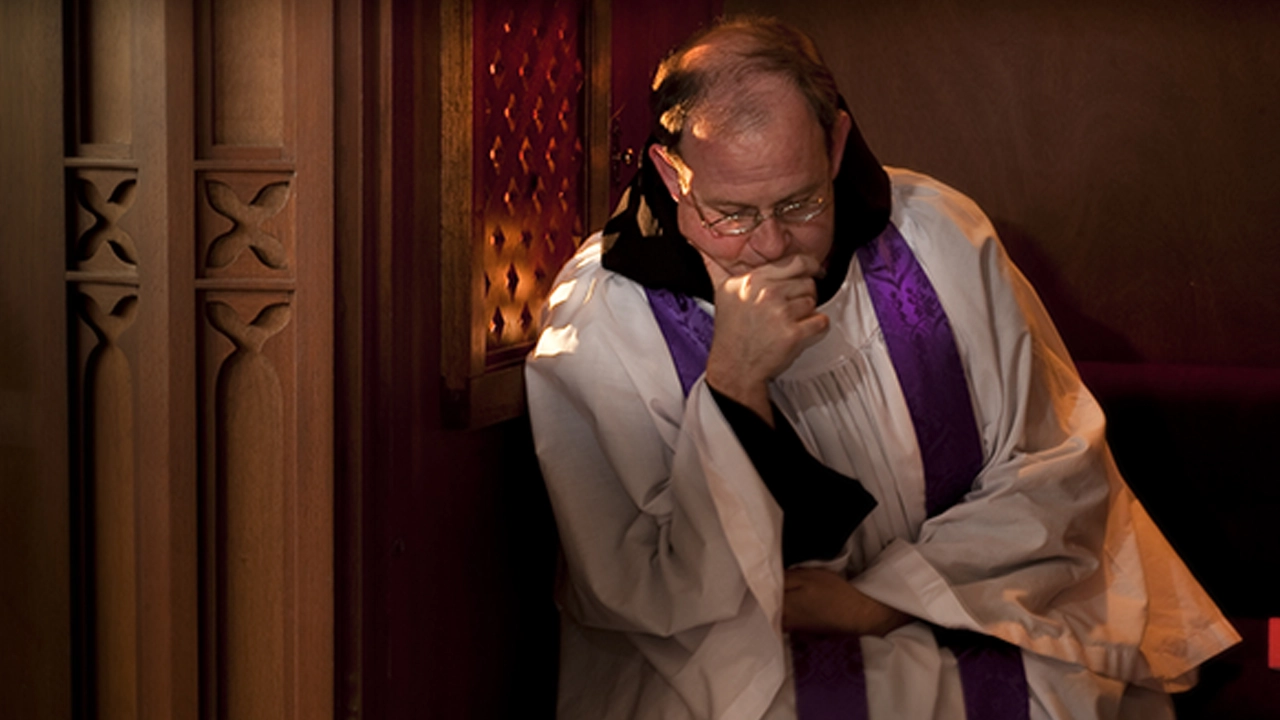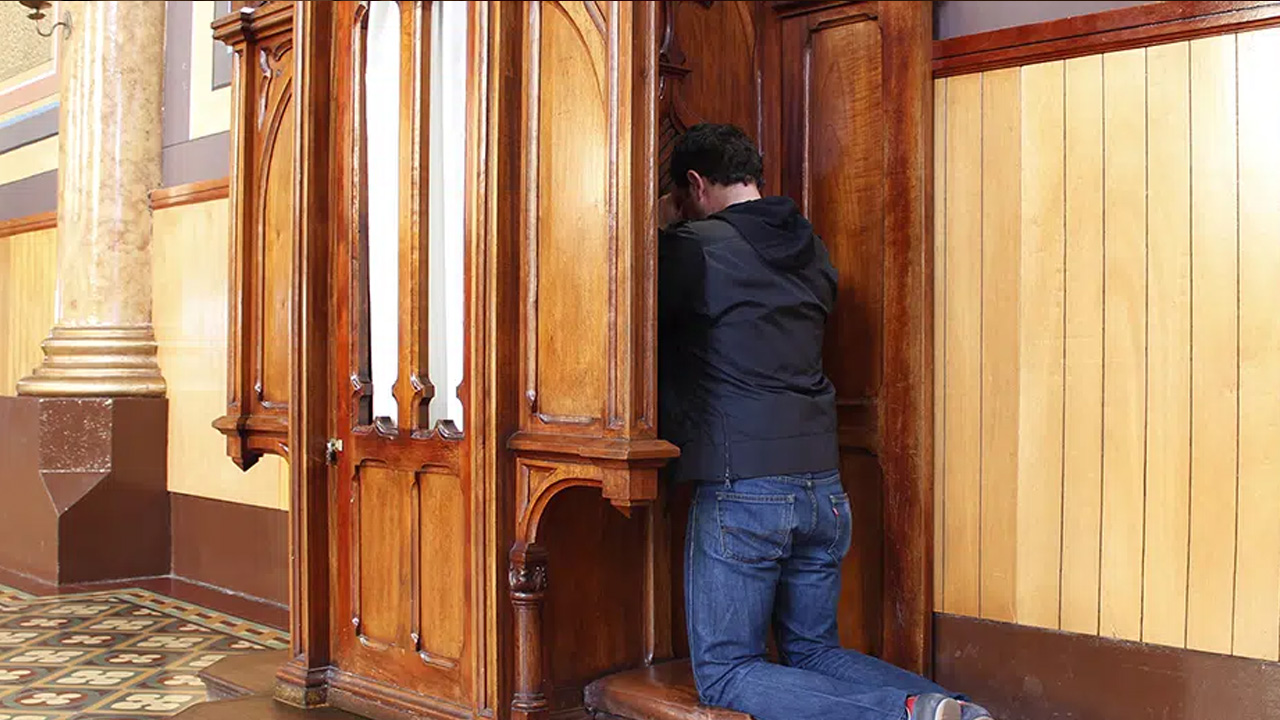Question:
Dear Father: Some time ago it was reported that a Catholic priest refused to identify the man who stabbed him during a confession because of the secrecy of confession. Is this so? How far is the secrecy of confession binding?
Response:
General Terms
The Code of Canon Law, canon 983, paragraph 1 says: “The sacramental seal is inviolable; therefore it is absolutely forbidden for a confessor to betray in any way a penitent in words or in any manner and for any reason.”
We can also read in the Catechism of the Catholic Church, 1467:
Given the delicacy and greatness of this ministry and the respect due to persons, the Church declares that every priest who hears confessions is bound under very severe penalties to keep absolute secrecy regarding the sins that his penitents have confessed to him. He can make no use of knowledge that confession gives him about penitents’ lives. This secret, which admits of no exceptions, is called the “sacramental seal,” because what the penitent has made known to the priest remains “sealed” by the sacrament.
The seal obliges one to keep absolute secrecy of all that is accused in order to obtain absolution (in ordine ad absolutionem), even if such absolution is not obtained or the confession is invalid.
On the other hand, a confession made to deceive the confessor, to extort money from him, to make fun of him, or for any other reason, is not sacramental and therefore does not impose the obligation of secrecy.
The seal is binding by natural law (by virtue of the quasi-contract established between the penitent and the confessor), by divine law (in the trial of confession, established by Christ, the penitent is the accused, accuser and sole witness; which implicitly implies the strict obligation of secrecy) and by ecclesiastical law (Code of Canon Law, can. 983). Thus, the sacramental secrecy can never be broken under any pretext, whatever the private or public harm that could be avoided or the good that could be promoted; it even obliges one to endure martyrdom rather than break it, as was the case of St. John Nepomucene. Here we must hold fast to what St. Thomas affirmed: “what is known under confession is like something unknown, since the confessor does not know it as man, but as God” (In IV Sent., 21,3,1).
What is covered by confidentiality? It is necessary to distinguish between essential and accidental object.[1]
a) Primary essential object: are all grave sins, even generically indicated, and venial sins, not in general but on concrete matters. Unless such sins are known to the confessor by another way; but he ought to never speak of them implying that he also knows them by confession.
Secondary essential object are all the other data that the penitent manifested during the declaration of his sins (unless they are public facts) and that can be summarized in one of the following:
- circumstances of the sin (purpose, time, place, etc.)
- object of the sin (e.g., if he accuses himself of having spoken badly because of the scandal his neighbor gave in such and such a matter)
- accomplice
Likewise, the fact of having denied absolution to such a penitent, the penance imposed on him (unless it is the lightest that can be given), etc., is also an essential secondary object.
b) Accidental object: other data that may cause some discomfort to the penitent, but that have nothing to do with the sins accused, for example, physical or psychological defects, etc.
How is the sacramental seal violated?
The seal can be violated in two ways:
a) Directly: when the name of the penitent and the sin committed are clearly revealed. This even if the person is not known by the listeners (for example, if a missionary comments before people who do not know the missionary’s place of mission, that the chief of the tribe he is missioning confessed to adultery). It is not necessary for him to say that what he is saying is known by confession; in order to break it, it is enough that it is in fact so. It does not admit parity of matter.
b) Indirectly: when, without revealing the name, something is said recklessly so that others can guess who it is and what they did.
Responding to the question
In the above case: does the identity of the person who assaults the confessor in the confession fall under secrecy?
A distinction must be made:
a) If the confession was feigned, in order to assault the confessor, it does not fall under secrecy, as stated above.
b) But if the confession was not feigned, then it is obligatory under seal according to the opinion of St. Alphonsus. He says: “Nor do I believe that it is licit as a rule to manifest the sins committed by the Penitent while confessing, for example, the shameless things he says to the confessor, and the like, because then it would be indirectly manifested either that he was denied absolution, or that he was given some strong reprimand.”[2]
On the other hand, the identity of the penitents (not that of the one who assaults the confessor) is not something that falls directly under secrecy, unless the penitent had forbidden him to discover it, or if he had gone secretly to confession.[3]
Fr. Miguel A. Fuentes, IVE
[1] Cf. Manzanares, Nuevo Derecho parroquial…, p. 282
[2] [2] St. Alphonsus Ligori, El hombre apostólico intruido para el Confesonario, o sea, Práctica e instrucción de confesores, Tratado XVI, cap. VIII, n. 154 (Librería Castellana, París 1849, p. 240). (Translated from the Spanish Edition).
[3] Ibid., n. 156; p. 241.















